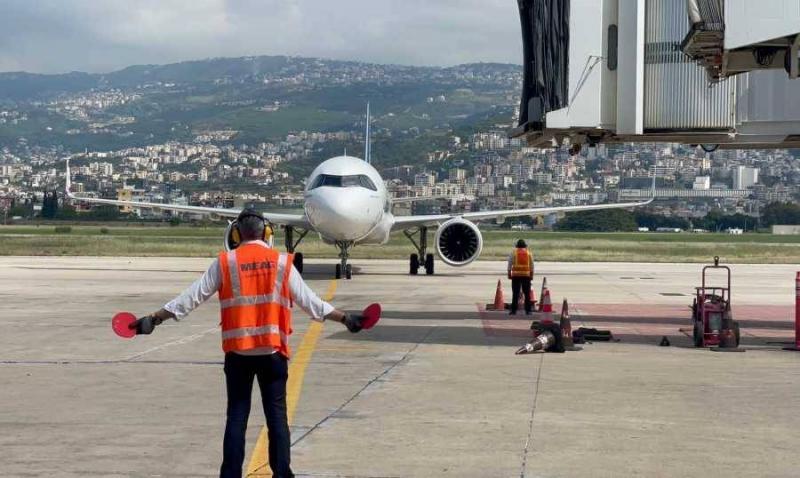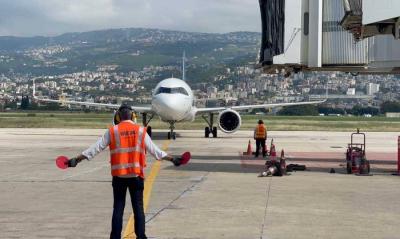The Lebanese air traffic controllers at the General Directorate of Civil Aviation issued the following statement: "We, the remaining air traffic controllers in the General Directorate of Civil Aviation, warn of the critical situation due to a severe shortage of working controllers, as our number has dwindled to 13, including heads of departments, sections, and branches. We operate in two separate centers as follows:
- 6 controllers in the regional control department (radar) out of 52 controllers, assisted by two retired contracted controllers.
- 7 controllers in the airport control department (control tower) out of 35 controllers, assisted by one retired contracted controller.
We work together in parallel to ensure airport operations 24/7 throughout the year. We have thus far avoided addressing the media despite our ongoing suffering for years, as publicizing such details could have repercussions on air traffic affecting airlines, aircraft insurance companies, and the International Civil Aviation Organization.
Contrary to what some dubious press sources have claimed about injustices and slanders against the air traffic controllers from the '90s, we, the concerned parties, have not ceased for years to demand recruitment and training, since we belong to a directorate that was abolished by Decree No. 7251 on 21/1/2002 for the establishment of the Civil Aviation Authority, which has yet to be formed. Any of the mentioned solutions requires the approval of the Council of Ministers, and in most cases where we reach a solution, we encounter barriers, whether sectarian, political, or other obstacles whose backgrounds we do not understand. The most recent solution was the hiring of assistant controllers from the 2018 batch, which did not happen and was essential to begin addressing the long-term crisis, as an assistant controller requires over three years of intensive training at an institute accredited by the International Civil Aviation Organization to become a certified controller."
The statement continued: "From here, we proposed bringing in certified controllers from abroad, as they would need a brief period to adapt to navigation plans in Lebanese airspace to assist us, ensuring equality between them and us in terms of working hours and wages until the assistant controllers from the 2010 batch, who have not been trained to date—despite our persistent requests for their training—are trained, along with the entry and training of the new assistant controllers (2018 batch). We have reached a point where we are overworked, enduring immense fatigue due to working under inhumane, unacceptable schedules, both locally and internationally, exceeding 300 hours monthly without accounting for covering special and enforced absences, remembering that most of us are over fifty years old. In other words, each one of us is working for four or more controllers, which is extremely dangerous and jeopardizes air traffic safety.
Since we still face barriers whose backgrounds we do not know that obstruct any solutions we propose, and in the absence of solutions and the administration's frivolous handling of all the suggestions we make to save the situation—such as several reports submitted over a year ago by unit heads urging the reinforcement of licensed controllers or closing the airport at night according to the current number of controllers, similar to foreign and European airports—but to no avail, we inform that, in our commitment to the safety of air traffic and passengers, starting from September 5, 2023, we will adhere to a shift schedule that covers operations at Rafic Hariri International Airport in Beirut from 7 AM to 8 PM. Flight schedules will be adjusted according to the air traffic controller's capacity, which aligns with our current number and ensures the safety of air operations until necessary reforms in the aeronautical authority are implemented for 24-hour safe and sound airport operation."




